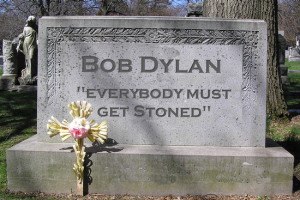July 20, 2014
If I were Shakespeare…
Well, here’s what I would do if I were Shakespeare & Co., a theatre company in Lenox, Massachusetts of which I am inordinately fond, as consistent readers of this blog know (hi, Mom!).
Yesterday my wife and I went to an open rehearsal of a scene from Henry IV, Part 2, Scene 2. For about an hour we watched Malcolm Ingram (Falstaff), Kevin Coleman (Shallow), Ariel Bock (Silence) and Michael F. Toomey (Bardolph) being directed by Jonathan Epstein, who has abridged and combined the two Henry IV’s. The rehearsal started out fascinating and got even better from there.
The actors in Shakespeare & Co. rehearse before they’ve learned their lines by being shadowed by someone who whispers their lines to them. That way (as Kevin Coleman explained) they can rehearse while looking at the person they’re talking to instead of looking down at a piece of paper. The result is an early rehearsal in which the actors can act together and experiment.
Jonny Epstein is an actor and a highly collaborative director. He interceded occasionally to punch up a reading, and always kept an eye on the audience’s interests: We need a gesture to understand what “bona-robas” are (high quality courtesans — literally “the good stuff”); Falstaff should turn to the left while pointing to the right so that both sides of the audience are involved, etc.
But as the scene came to a close, it took a turn towards the awesome.
It’s a short and humorous scene in which Justice Shallow is greeting his old friend Falstaff. There’s funny business about rounding up men for Falstaff, which in this abridged, small-cast version had the actors pointing into the audience. Very amusing.
The scene ends with Shallow inviting Falstaff to dinner. They’re about to wander off, in a convenient scene-closing way, when a memory from fifty-five years ago pops into Shallow’s mind. “O, Sir John, do you remember since we lay all night in the windmill in Saint George’s field?” This becomes a chat about old acquaintances who now are old or dead.
The first time through, the actors played it lightly: a bunch of old folks remembering their lusty youths. But Epstein then suggested that they stop their funny business. Just stand there and talk. Without further direction, the actors changed everything: posture, cadence, expression, diction, interaction. And it became a scene about age and youth that touched me deeply.
It was, in short, a moment of transcendence. I got yer magic of the theatre right here.
Shakespeare & Co. is a great company, but it rarely plays to full houses. If I were them, here’s what I would do:
1. Video every lecture they give and put it on the Web for free. In fact, do more lectures, at least one for every play they produce. These lectures have been consistently fascinating. I want people to get used to looking up the Shakespeare & Co. lecture before going to see a Shakespeare play performed by any group.
2. Video a performance of each play presented, and post it for free on the Web. Have some of the summer interns do it. No one who comes would have stayed at home if they could have watched a video of it, especially since the company doesn’t have the resources to do studio-quality video production.
3. Post a second version of these videoed performances with a director’s track. Have the director and some of the actors explaining both the play and their decisions about it. We want teachers to play these scenes when introducing students to Shakespeare, and we want people who just saw a performance to then see the thinking behind it.
Now, there may be Actors Equity rules that prevent this, which would be a shame because videos like these would help expose the actors’ talents more broadly. And I suspect that Shakespeare & Co. may have reservations about posting content that’s not of the highest professional quality. If so: get over it! It’s the Web! Trust comes from imperfection.
In any case, when you’re in the Berkshires, do come. And bring the kids.











